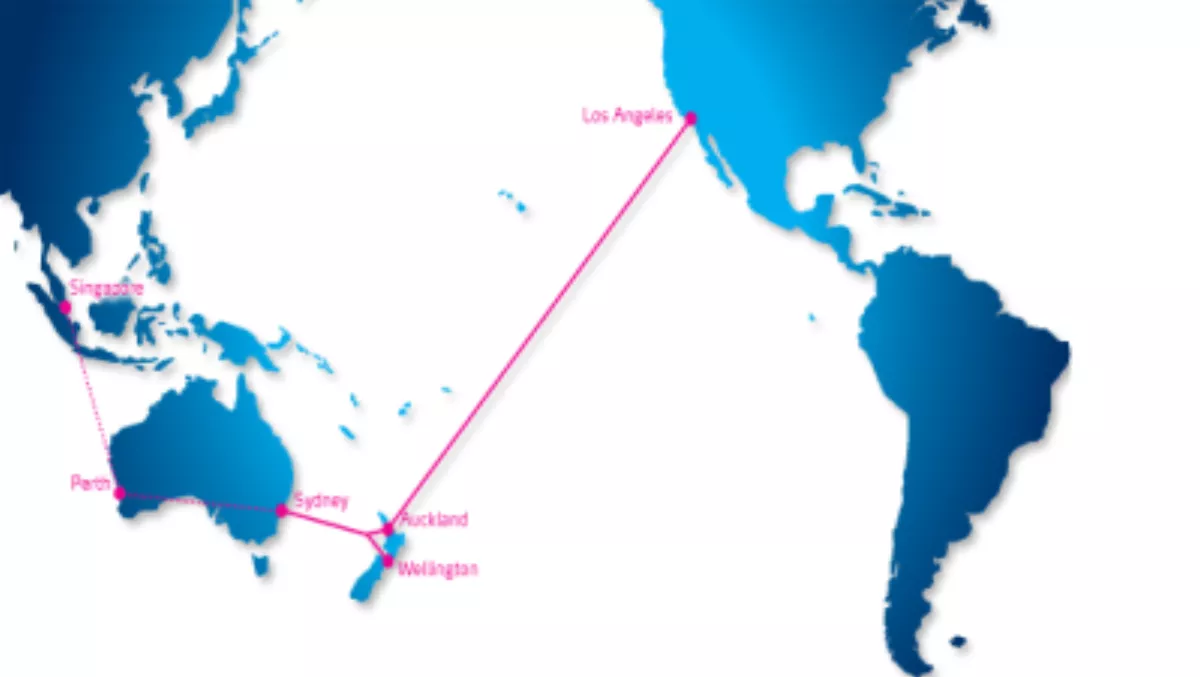Rod Drury, Stephen Tindall and Sam Morgan have announced today they are backing the creation of an international cable to rival Telecom’s Southern Cross Cable.
In a further twist, the management team is being led by Mark Rushworth - who resigned in January from his role as Vodafone’s chief marketing officer and who is the former CEO of iHug. He is joined by John Humphrey and Lance Wiggs.
Drury told TR that Pacific Fibre - described as “an early stage international fibre venture” in the press release - is after funding to build a 5.12 Terabits/sec capacity connecting Australia, New Zealand and the USA. It’s estimated to cost $900 million and they aim to make it live in 2013 - just 22 months from now.
He says they’ve been talking about it for 12 months, but serious planning began four months ago. “We saw there was a strong appetite for big debt infrastructure-type products in the financial market. We figured if we could stand up the ducks and start talking to people, perhaps we could pull it off.”
Part of the catalyst is the government’s $1.5 billion fibre to the home proposal. According to Pacific Fibre 90% of New Zealand internet traffic goes offshore, so a major boost to international capacity is required to “fix the 7pm bottleneck”.
Drury says they looked at a number of options - building to Guam, Hawaii or to Sydney, but they couldn’t get enough of the value chain to make it worthwhile. He also says that going all the way to America ensures a lower latency cable.
Today’s bold announcement is intended to “flush out” potential investors - and rivals. Asked about the timing, Drury says they were ready to go. But it can’t help that tomorrow the Telecommunications Industry Group is holding a major event in Auckland.
The plan
Pacific Fibre is likely to secure funding through a debt equity arrangement (possibilities include vendor finance or a listed security), as Drury says they are keen to ensure ownership remains in Australasia. "We think a debt style instrument where there is a revenue hurdle in order to get to to pay for it, that seems to be the best way to pay for these sorts of projects."
To date Tindall, Morgan and Drury have put their own money into the project - how much Drury wouldn’t say.
They intend to use the funding, and the demand generated by service providers (some of whom have already been approached by Pacific Fibre), to build a cable that connects NZ, Australia and the US and goes live in 2013. The configuration would be 13,000 km long, have two fibre pairs with 64 wavelengths (lambdas) each at 40 Gbps per lambda. The maximum lit capacity would be 5.12 Terabits/sec, but would be upgradeable to over 12Tbps as the emerging 100Gbps per lambda technology becomes reality. Pacific Fibre says its cable will have five times the capacity of the Southern Cross Cable.
Details such as where the cable would land in New Zealand have not been determined.
The rivals
Laying a cable all the way to America puts Pacific Fibre up against Telecom, which has a majority share in the Southern Cross Cable, currently New Zealand’s only international cable. Drury says the cable will actually benefit Telecom as it will provide alternative capacity for some of its services. He says they have not discussed their plans with anyone at Telecom.
Then there is Kordia - the state-owned enterprise got board approval to build a cable between New Zealand and Australia last year. The plan was to partner with PIPE which recently completed its cable from Australia to Guam. However PIPE is currently in the midst of being sold off. Drury says Pacific Fibre shared their plans with Kordia CEO Geoff Hunt and Corporate Affairs GM Susie Stone and hope to work in collaboration with Kordia in order to avoid duplication.
The other potential rival is SPIN - a French Canadian company which had offered to partner with Kordia earlier this year. Drury says they don’t believe SPIN will build a cable to New Zealand.


